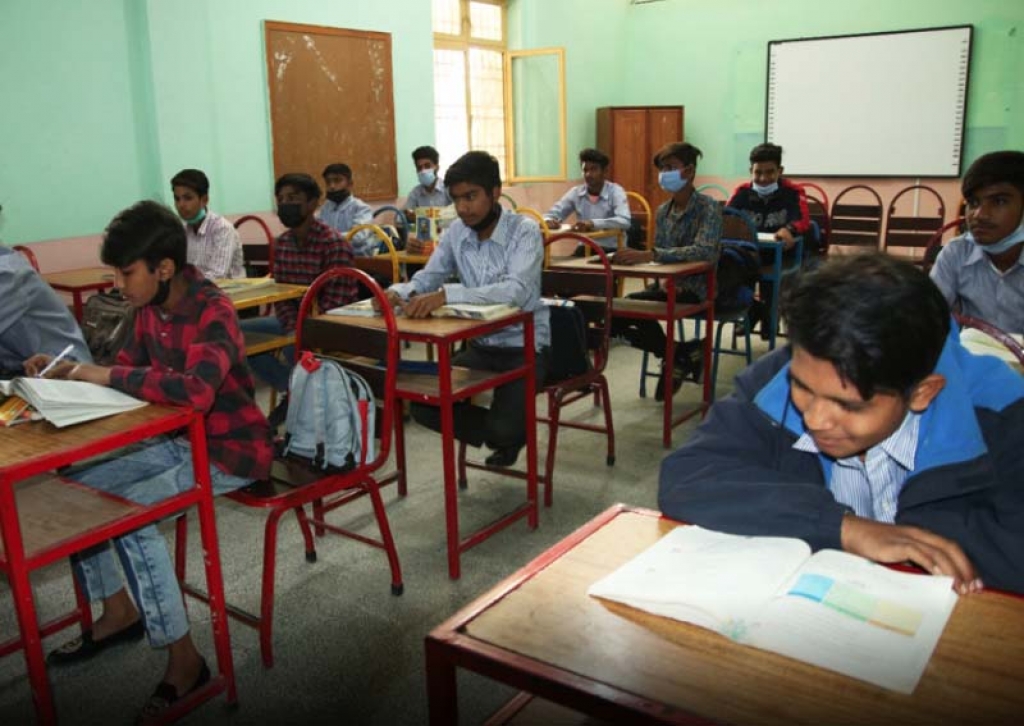PAKISTAN: Schools ‘awaken’ the skills of students

More than 1,000 students from disadvantaged families attend Salesian schools in Quetta and Lahore
(MissionNewswire) Salesian centers in Quetta and Lahore, Pakistan, offer quality education and an innovative teaching style. More than 1,000 students from disadvantaged families attend Salesian schools. Salesians first started providing education in Pakistan in 1998, and today, their centers are considered some of the best education in the country.
“We try to offer quality and innovative education,” said Father Gabriel Cruz, a Salesian missionary from Mexico who has been working in Lahore for three years. “The Pakistani education system is focused on memorizing and reproducing while we try to awaken the skills of students. For this reason, in recent months we have installed interactive multimedia boards in almost all the classrooms,”
Salesian schools provide economic benefits, scholarships and accommodations for students from the poorest families so that education is not only accessible but also an incentive for parents to send their children to school. Pakistan has one of the lowest literacy rates in South Asia at less than 50 percent. Although the country’s constitution acknowledges free and compulsory education between the ages of 5-16, the rule is often not followed in rural areas for those over 13.
More than 600 students attend the Salesian schools in Quetta. Almost half of these students are girls and the vast majority are Christians. In addition, the boarding schools house 30 boys and 20 girls. In Lahore, the Salesian secondary school has 200 students and 250 students in vocational training courses. The hostel near the school houses 150 students.
In Lahore, Salesians offer three-year programs in mechanical engineering, information technology and electrical engineering. There are also one-year courses in welding, refrigeration and air conditioning, plumbing, carpentry, and electrical skills, as well as a diploma in information technology. There are also shorter 6-month courses for hairdressers, beauticians and make-up artists.
“As in any Salesian center, the courtyard or playground is an important element in education,” added Fr. Cruz. “We offer outdoor activities, music, theater, cinema and sports competitions.”
Pastoral and humanitarian work also have an important place in what Salesians offer those in the local community. They focus on the needs of the population in the midst of natural disasters and the distribution of food and hygiene kits during the pandemic. The work is not without difficulties and challenges.
Fr. Cruz explained, “We need help because we find it hard to pay the salaries of teachers as the beneficiaries are poor. We intend to develop a program of infant nutrition in schools and another project for free school transport for those students who come to our schools every day from over 30 kilometers away.”
According to the World Bank, 31.3 percent of people living in Pakistan fall below the poverty line. Gender plays a role in poverty in the country. Pakistan has traditional gender roles that define a woman’s place in the home and not the workplace. As a result, access to education is challenging for girls and society investments are less. There are few opportunities for women and girls in the country outside of traditional roles. This is evidenced by the disparities in education including the literacy rate.
###
Sources:
ANS Photo (usage permissions and guidelines must be requested from ANS)
ANS – Pakistan – Salesian Education: Excellence despite odds
World Bank – Pakistan




